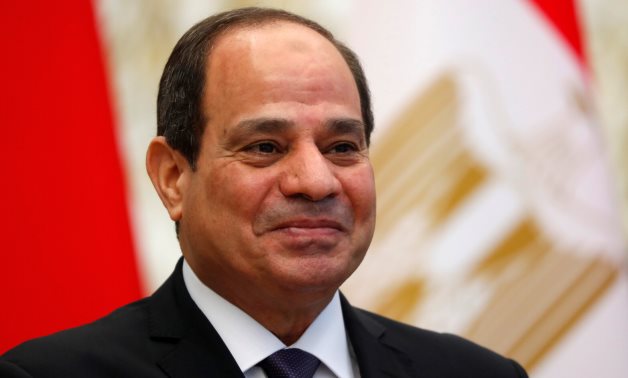The number of children per family should be regulated to avoid “disaster,” said Egypt’s President Abdel Fattah Al-Sisi at the inauguration of the Global Congress on Population, Health, and Development (PHDC 2023). The president’s statement came as one of several remarks about the country’s current population crisis.
The comments came as a response to Egypt’s Minister of Health and Population Khaled Abdel Ghaffar’s speech at a panel discussion titled “Population Growth and the Healthcare Landscape of Tomorrow,” in which he noted that the state cannot mandate any limits on the number of children that a family can have.
“Some people are unaware of the seriousness of the [population] challenge, and society and the Egyptian state are paying the price,” the president stated.
Al-Sisi highlighted that, despite the abundant resources in Africa, they may not suffice to accommodate the projected population expansion on the continent, which could surpass 1.6 billion people. He added that Egypt must maintain an annual population growth rate of 400,000 for the next two decades – otherwise, the state would be unable to sustain the services and infrastructure that it has built and provided to citizens over the past seven decades.
Additionally, Al-Sisi mentioned that Egypt’s government had invested approximately EGP 10 trillion (USD 323 billion) in infrastructure development over the past ten years in response to challenges which he argued were posed by population growth.

The president also attributed citizens’ dissatisfaction with their income over the decades to the effects of population growth, stating, “In the fifties, people were content with receiving a small wage, but now, despite earning higher salaries, they remain unhappy.”
He went on to cite countries such as China and India as examples of nations with substantial populations that managed to successfully transform into economic powerhouses thanks to the success of their family planning initiatives.
Al-Sisi argued that excessive population growth presented a significant challenge that culminated in the 2011 revolution, as the government struggled to meet citizens’ basic needs. He cautioned against the potential harm of repeating the events of 2011, which could cost the already financially strained country hundreds of billions of dollars.
“If the population were not as large at that time, people wouldn’t have experienced the lack of adequate healthcare, education, and employment,” remarked the president. “Change in Egypt will come through cooperation and understanding between citizens, the government, and leadership.”
Al-Sisi, however, also underlined the Egyptian state’s resilience in the face of consecutive crises, including the COVID-19 pandemic and the Russia-Ukraine conflict, highlighting the collective responsibility of the state, media, religious figures, intellectuals, and civil society organizations in addressing the issue of overpopulation.
“You are all encouraged to address this problem,” he urged.
Abdel Ghaffar stated that Egypt’s population has grown by 40 million since the year 2000, reaching a total of 105 million people. However, the minister revealed recent data that could entail a shift in population dynamics: in 2022, there were 2.193 million newborns in Egypt – only a slight 0.4 percent increase from the 2.185 million born in 2021.
Additionally, Abdel Ghaffar reported a notable decline in the country’s fertility rate, which has dropped from an average of 2.85 children per woman in 2021 to 2.1 percent in 2023. He also noted a 13 percent increase in the utilization of family planning methods, reaching 75 percent this year.
The PHDC 2023 is scheduled to take place in the New Administrative Capital from 5 to 8 September.
Subscribe to the Egyptian Streets’ weekly newsletter! Catch up on the latest news, arts & culture headlines, exclusive features and more stories that matter, delivered straight to your inbox by clicking here.







Comments (3)
[…] President Abdel Fattah Al-Sisi continues to face the same obstacles Mubarak met in 2008: unplanned population growth. His response was to launch the […]
[…] Source link […]